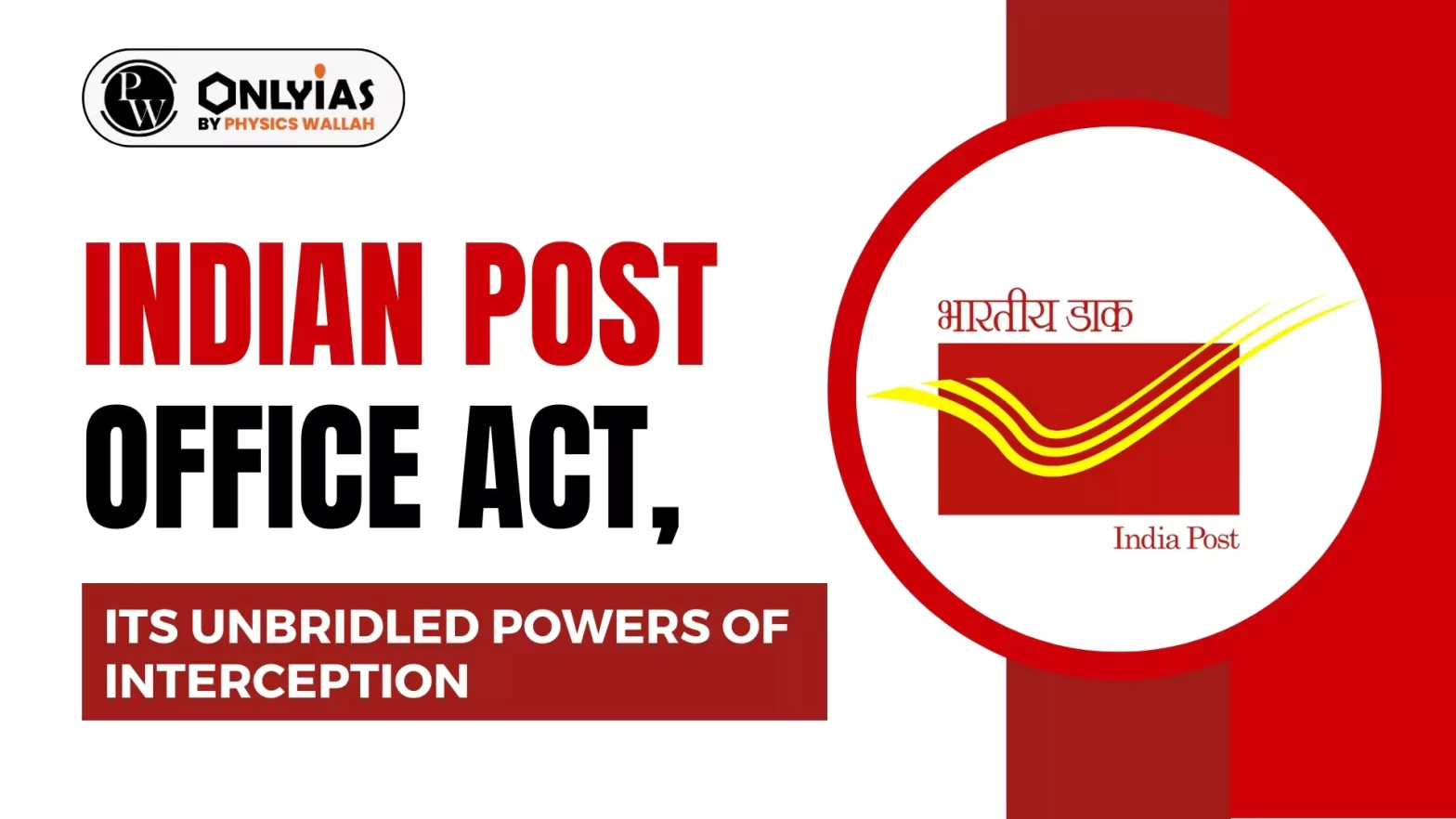Context:
This editorial is based on the news “Post Office Act, its unbridled powers of interception” which was published in The Hindu. Recently, the President of India gave assent to the Post Office Bill, 2023 which will replace the colonial-era Indian Post Office Act, 1898.
Indian Post Office Act and Concerns with the New Post Office Bill 2023
- Unchecked Powers: There is a power of interception of any item by the post office authorities, including the conditions of such interception, i.e., (occurrence of any) ‘emergency’.
- Undefined Emergency: The emergency provision is not defined under the Post office Act.
- It must draw inference from rule 419A of the Telegraph Rules or the IT Rules which clarify what constitutes the ‘emergent’ cases.
- No Procedural Safeguards: There are no procedural safeguards to check arbitrary use by the authorities or any liability in case the power of interception is misused.
- On Interception: The Post Office Act has made the interception provision more liberal by removing the two major conditions, namely ‘the occurrence of public emergency’ and ‘in the interest of the public safety’ which are specifically mentioned in the Act of 1898.
- On Authorities: There is no provision for taking any action if the competent authority exceeds or misuses his powers of interception.
About Telecommunications Bill 2023
- Received Ascent: It was also recently received the President’s assent which replaced the Indian Telegraph Act, 1885 and the Indian Wireless Telegraphy Act, 1933.
- Procedural Safeguards: The Telecommunication Act has a provision, i.e., section 20(2) on interception of messages which empower the central government to notify rules on the precautions to be taken for preventing the improper interception or disclosure of messages are now included in section 20(2).
- On Interception: Though unauthorized interception is punishable under the Telecommunication Act, review committees are not bound even to recommend any disciplinary action for misuse of powers by the competent authority.
Statutory Laws & Powers
- Section 69(1) of the Information and Technology (IT) Act, 2000: It also provides for interception of any information through any computer source, though the necessary requirement does not call for the occurrence of ‘any public emergency’ or any demand in ‘the interest of public safety’.
- The People’s Union for Civil Liberties (PUCL) vs Union of India (1996): Supreme Court laid down the procedure and safeguards to check arbitrariness and a misuse of powers by authorities regarding this interception.
- Right to Privacy: Phone tapping is an infringement of the right to freedom of speech and expression under Article 19 of the Constitution, it is permissible only if it comes within the grounds of restrictions under Article 19(2).
- The right to privacy is a part of the right to life and personal liberty, under Article 21 and cannot be curtailed ‘except according to procedure established by law’.
- Also, ‘the procedure itself must be just, fair and reasonable’ ‘to rule out anything arbitrary.
- In District Registrar and Collector, Hyderabad versus Canara Bank (2005): SC held that the right to privacy is not lost as a result of confidential documents or information being parted with by the customer to the custody of a bank.
- In Justice K.S. Puttaswamy (Retd.) & Anr. vs Union of India & Ors. (2017): The right to communication has been held to be a part of the right to privacy and thus protected under Article 21 of the Constitution.
- Article 17 of the International Covenant on Civil and Political Rights, 1966: No one shall be subjected to arbitrary or unlawful interference with his privacy, family, home and correspondence nor to unlawful attacks on his honour and reputation’.
- Directive Principle 51(c) of the Constitution: The international conventions must be respected unless they are in conflict with domestic laws.
Also Read: Section 67 IT Act And Social Media Likes
Way Forward
There is a need to eliminate the concerning part of India’s Post Office and Telecommunications laws by ensuring the protection of privacy rights and need to establish explicit procedural safeguards, which must prevent the misuse of interception powers by defining ’emergency’ situations more clearly.
The competent authority needs to be held accountable.
![]() 22 Jan 2024
22 Jan 2024

